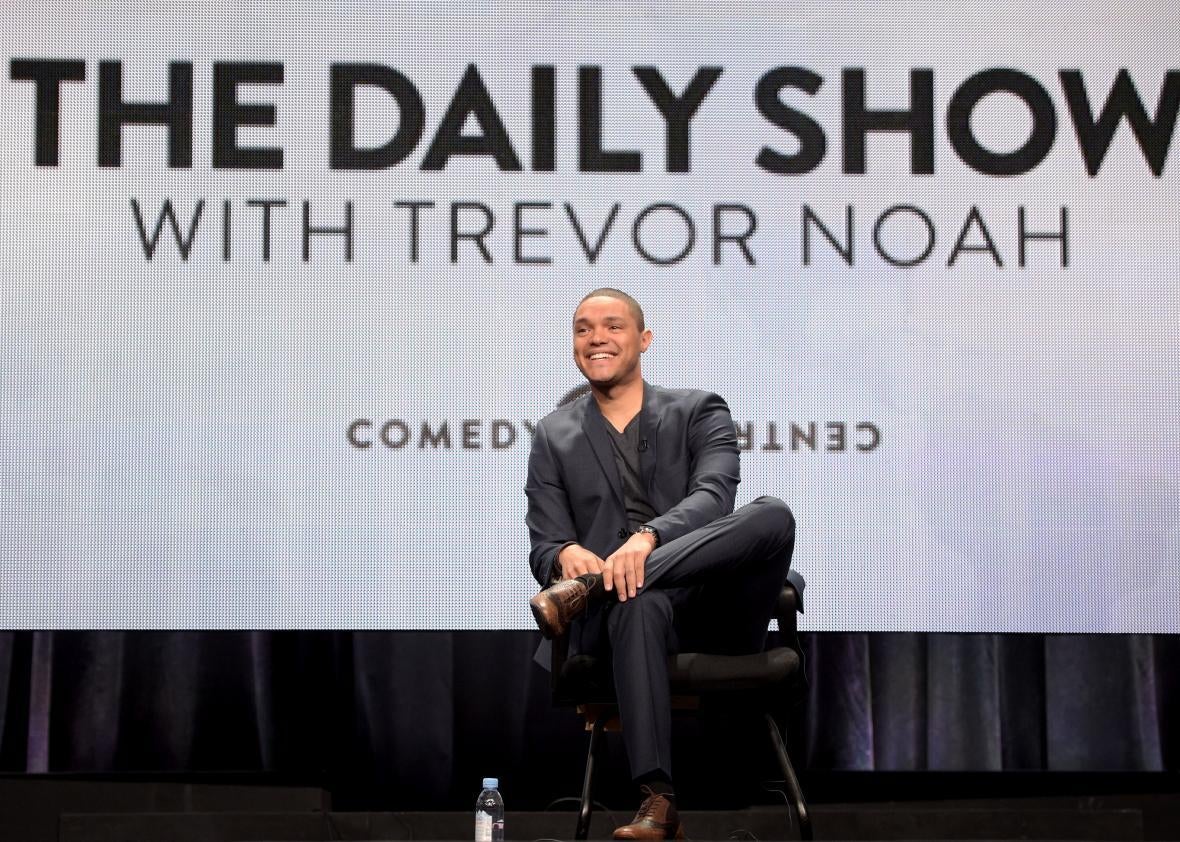The reaction to Monday’s Vanity Fair comedy dudefest was swift and unified. Moments after the magazine published a photo of 10 men to illustrate its article on why late-night TV is “better than ever,” Twitter erupted the way only Twitter knows how.
Whether or not Vanity Fair intended the photo as a jarring critique of the endemic sexism in contemporary comedy and television—let’s go with “not”—it is an effective visual signifier of a bleak reality that can’t be explained away as coincidental or merit-based. For anyone who thinks about issues of diversity and gender equity, looking at the overwhelming maleness of this bourbon-nursing pack is like looking into the sun.
Not so for Trevor Noah. The soon-to-be host of The Daily Show told Newsweek on Monday that he thinks women are “more powerful” than men in comedy today. “If you look at the top comedy actors, Melissa McCarthy by far is killing the numbers of other actors,” he said, naming Amy Schumer, Tina Fey, and Amy Poehler as other top comics in the field.
What numbers are McCarthy killing, exactly? Her star turns in Spy tand Tammy helped those films kill it at the box office, and she pulled in $23 million in pretax earnings in a single year, but McCarthy didn’t come close to clearing the $28.5 million threshold of Forbes’ list of the 100 highest-paid celebrities. The June 2015 list included 17 male actors—including comedian Jerry Seinfeld and comedy actors Adam Sandler, Jim Parsons, and Kevin Hart—and just four actresses.
Noah continued:
I guess what we need to look at is how is that evolving? The first step in that is you go, OK, there’s two men of color. That’s a big jump. Pretty soon there will be a woman that’ll be added to that. And there will probably be more women, which is gonna be fantastic. And over time, that’ll happen; it’s a conversation that we need to continue having.
Two men of color out of 10 is better than none, but it’s hardly a big jump. Notwithstanding Noah’s history of problems with women, his complacent, tepid hope for incremental gains is a major part of the entertainment industry’s gender problem. There’s a prevailing attitude that gender and race equity are inevitable—that if we wait long enough and stop griping over quotas and diversity initiatives, they’ll happen on their own.
But TV lineups aren’t chosen by an algorithm that spits out a steadily rising number of female hosts each fall. There are human decision-makers behind these TV networks: producers, investors, and executives who usually hold more power than the (sometimes female) stars themselves—and who sometimes have some bizarre ideas about when diversity is and isn’t appropriate, as was the case with Matt Damon on Project Greenlight. While the harsh reaction to Vanity Fair’s photo should be read as an indictment of barriers to women in comedy, Vanity Fair editors, too, make deliberate choices that affect the gendered landscape of TV. Noah won’t start at his post until Sept. 28, but he made it into the boys’ club; Samantha Bee and Chelsea Handler, both of whom have forthcoming late-night shows in the works, did not. The next time a magazine pulls a move like this, Noah would find better footing lampooning his own industry from The Daily Show pulpit than defending it.
